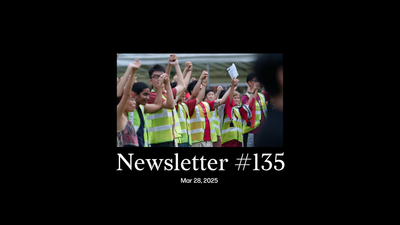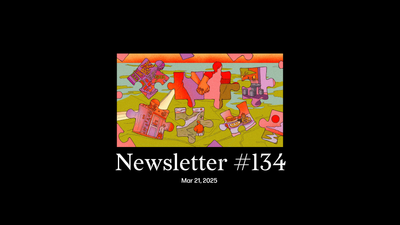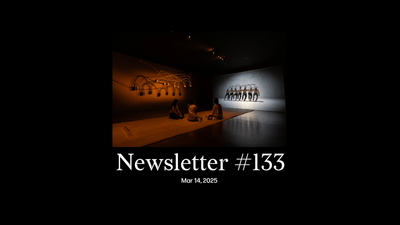Dear reader,
How many of you love thunder tea rice (lei cha)?
Well, somewhat embarrassingly, that’s what got me deeply interested in the imminent razing of numerous small farms in the north-west of Singapore. I had heard whispers about it, but really only became passionate once I found out that my favourite thunder tea shop was closing because the government was repossessing the farm that supplied it. (Yes, yes, Singaporeans and our food.)
Thankfully, Waye, our head of content, was already plugged in. Along with two other photographers, she has put together Jom’s first ever photo essay, “Our farmland, a world lost”.
It is an elegy of sorts, though one that hopefully inspires us to a brighter future. Who decides how we use our land? How can Singaporeans get more connected to it? Bukit Brown, Dover Forest, Lim Chu Kang farmland: why do we get involved only when we’re about to lose something, and how do we change that, how do we get ahead of the development curve?
There are two other firsts today. This is our first proper piece in the broad “green” space. Jom hopes to eventually hire an adjunct climate editor to lead our efforts here. Let me know if you have any recommendations!
And, we’ve also published “Lei cha, a gift from the Hakkas”, a companion piece that looks specifically at thunder tea rice, the dish itself. It’s written by Jean, our head of research, and me. I guess this qualifies as Jom’s first ever food piece, and it’s outside the paywall.
Singapore desperately needs better food journalism, which can help shift society’s focus from Instagram-driven conspicuous consumption to other parts of the supply chain, like the farmers and the land. And so, likewise, Jom hopes to eventually hire an adjunct food editor. Could be a chef who writes, or a writer who cooks.
Read the two pieces, then reply and let me know what you all think about Jom’s foray into green and food. We’re keen to improve.
Next, onto what some have called a shakeup, others a bloodbath: the editorial changes at The Straits Times (ST). Though the official announcement was two days ago, rumours started floating around a week ago.
The main rumour proved true: Warren Fernandez, editor-in-chief (EIC) of the Group and editor of ST, will be replaced as EIC by Wong Wei Kong, current editor of The Business Times, and as ST editor by Jaime Ho, a former editor of CNA Digital. The other rumours, such as the firings of Helen Chia and Sumiko Tan, executive editors, are still unverified. (Read: there may still be time for you to have lunch with Sumiko.)
As we write in Singapore This Week, The Newspaper and Printing Presses Act (1974) gives the government the power to install senior editors, so these should effectively be considered political appointments.
In other words, it’s probable that some senior politicians didn’t like something about Fernandez. Rumours suggest that it’s Khaw Boon Wan, chairman of SPH Media Trust. Fernandez was a trained journalist, unlike his replacement as editor, Jaime, who started and spent most of his career as a bureaucrat, before joining CNA in 2013.
For many, this will be cause for scepticism. There is a long and chequered history of civil servants being pushed into the media, with the understanding that once inside they’ll do a better job of peddling the government line and reporting on miscreants. It’s easy to spot their copy–less literary, more dry, methodical, policy-paper like.
Still, and perhaps this is misguided, I’m actually quite optimistic about Jaime, who has been a friend for several years. Some of my best conversations about the state of the media in Singapore and the future of the industry at large have been with him.
There’s a romantic in him. I remember, over beers, pulling out a copy of The Mekong Review, and the two of us print junkies spending five minutes just leafing through it, wondering what it might take for Singapore to have a good, regular, literary print magazine. Jaime offered advice when Jom was starting up, including some great book recommendations for our boot camp.
Jaime has his work cut out for him, if he intends to build ST into a reputable regional paper, and not just a mouthpiece for the PAP. He’ll have to fend off political interference while trying to produce original, insightful content that can earn the trust of readers disillusioned with years of ST bias.
The best thing the PAP could do to ensure ST’s survival is just butt out. There are lots of good people there who would thrive without the fear of ministers breathing down their necks.
Coincidentally, a week before the announcement, an ST journalist came to interview Jom for an article on independent media outfits. I told them that if Jom is still around in 5-10 years, I foresee a wonderful, symbiotic relationship with ST. We depend on them for daily news, and hopefully they’ll find story ideas or new perspectives from some of our deeper research and longform storytelling. We shared a hope that Singapore’s media sector will become more diverse, as people start seeking more viewpoints outside officialdom.
Or maybe the PAP-led developmental state, our Leviathan, will just continue to control, crush, and suppress all other voices, from Jom to ST, as it did the little smallholder farms in Lim Chu Kang.
Best wishes,
Sudhir Vadaketh
Editor-in-chief, Jom
If you've enjoyed our newsletter, please scroll to the bottom of this page to sign up to receive them direct in your inbox.






